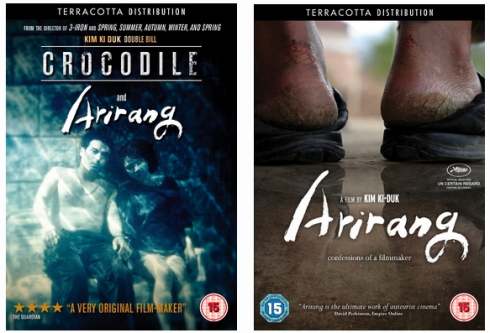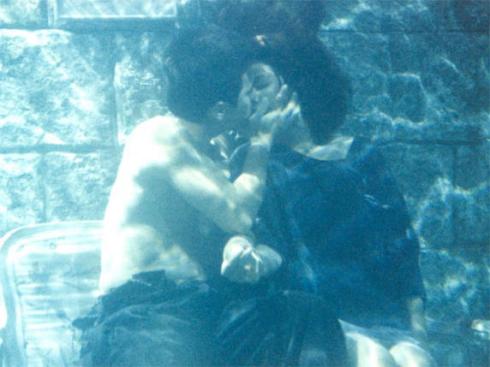Crocodile is the directorial debut of enfant terrible of South Korean cinema, Kim Ki-duk. It is an astonishingly accomplished piece of work for a first film, even more so taking into consideration that Kim Ki-duk had no formal training. Instead Kim Ki-duk studied fine arts in Paris, and it is his impeccable understanding of aesthetics that permeates his films enabling the director to construct complex, layered mise-en-scene utilizing natural objects and locations as backdrops to his intense tales of the fragility of human relationships and the landscapes of concrete modernity against which these relationships are formed and deformed.
Crocodile itself sets the template for many of Director KIM’s early works, including Bad Guy/나쁜 남자 (2001) which it reminds me the most of, with its detailed analysis of the lives of society’s outcasts, and their struggle to exist in a hostile landscape. The film concerns the lives of a group of four of these outcasts – Crocodile (JO Jae-hyeon), grandfather (JEON Moo-song), a young boy Yang-byul (AHN Jae-hong) and a young woman Hyun-jung (WOO Yun-gyeong) that Crocodile rescues from drowning from the Han River where he and the others live, eking out a living by the selling the effects of suicide victims and hustling on the city’s busy streets.
These are lives almost bereft of hope in which violence is a fact of life, as perpetrated by those surrounding this ‘family’ including corrupt cops, mobsters and a variety of street hustlers – here as elsewhere in Director KIM’s films, violence only begets more violence, and death is never very far away. Crocodile himself is the archetypal male protagonist of Director KIM’s early works, whose hatred of self is expressed through violence towards [female] others. For Crocodile rape is the currency that expresses relations between men and women, and is the only way that he can communicate with them. At one point, when Crocodile is attempting to rape the girlfriend of a rich businessman who he is attempting to blackmail, he uses a condom telling his unwilling victim that he wouldn’t want to bring another like him into the world, which foregrounds Crocodile’s self-loathing. Scenes such as this in Crocodile would seem to give credence to criticisms of Director KIM’s misogynism. However this would be to fail to understand that at is heart, Crocodile is a love story, albeit it a cruel one, in which Crocodile is humanized through his relationship with Hyun-jung, a redemption that is only fulfilled through death with the lovers at the bottom of the Han river, amid the discarded belongings that Crocodile has fashioned into an underwater living space. There is beauty in cruelty here, as elsewhere in Director KIM’s oeuvre, and beauty that is fashioned out of the rubbish of modernity.
As in the death scene with which the film ends, the cinematography is stunning utilizing a color palate drawn from the natural world to externalize and emphasize character psychology. There is beauty in nature, and KIM Ki-duk’s cruel beauty serves to remind us of that beauty, which is being discarded through the process of modernization and industrialization, mimicking the manner in which Crocodile and his ‘family’ have been discarded by society in order to remind us of the human costs of such intractable machinic process.
Crocodile is available to buy on double DVD with Arirang, Director KIM’s award-winning documentary, and can be purchased direct through Terracotta Distribution at a discounted price. These are two films – at polar opposite ends of the scale – by one of South Korea’s leading directors, that should take pride of place in any cinephile’s collection.



